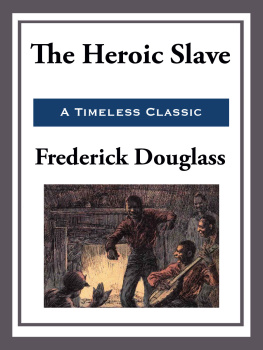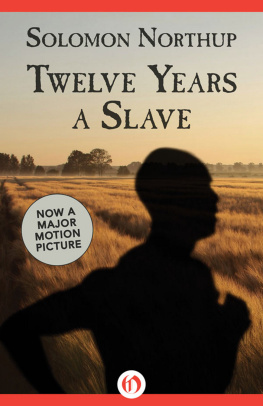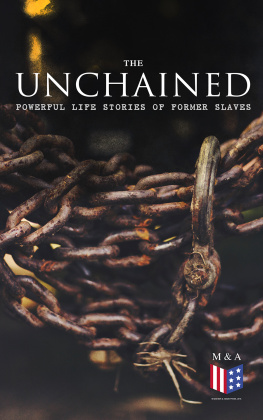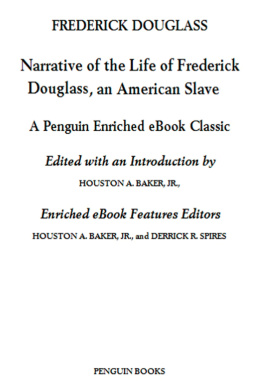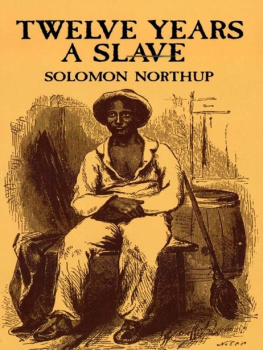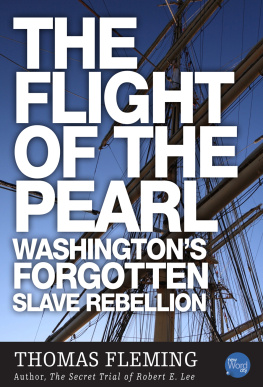Published by Louisiana State University Press
New material copyright 2008 by Louisiana State University Press
All rights reserved
Manufactured in the United States of America
First printing
Designer: Michelle A. Neustrom
Typeface: ITC Cushing BT
Printer and binder: Thomson-Shore, Inc.
Library of Congress Cataloging-in-Publication Data
Washington, John, 18381918.
John Washingtons Civil War : a slave narrative / edited, with an introduction and notes, by Crandall Shifflett.
p. cm.
Includes bibliographical references and index.
ISBN 978-0-8071-3301-9 (cloth : alk. paper) ISBN 978-0-8071-3302-6 (pbk. : alk. paper) 1. Washington, John, 18381918. 2. Fugitive slavesUnited StatesBiography. 3. SlavesVirginiaFredericksburgBiography. 4. Fredericksburg (Va.) History19th century. 5. VirginiaHistoryCivil War, 18611865Personal narratives. 6. United StatesHistoryCivil War, 18611865Personal narratives. 7. United StatesHistoryCivil War, 18611865African Americans. 8. African AmericansBiography. 9. Slave narrativesUnited States. 10. Fredericksburg (Va.)Biography. I. Shif?ett, Crandall A. II. Title.
E450.W325A3 2008
973.7'115092dc22
[B]
2007025213
The paper in this book meets the guidelines for permanence and durability of the Committee on Production Guidelines for Book Longevity of the Council on Library Resources.

PREFACE
On 18 April 1862, John Washington, a 24-year-old slave hired out by his owner, Catherine Taliaferro, to James Mazeen, was serving breakfast at the eating saloon in the Shakespeare Hotel in Fredericksburg, Virginia. The breakfast crowd on that Good Friday was restless because a rumor had been circulated among them that the Yankees Was advancing. Suddenly, several cannon reports sounded, and in an instant all Was Wild confusion as a cavalry Man dashed into the Dining Room and Said The Yankees is in Falmouth. A scramble for the door ensued. Mazeen came running up to Washington and thrust a roll of Bank notes in my hand and hurriedly told me to pay off all the Servants, and Shut up the house and take charge of every thing. Mazeen warned Washington that if the Yankees caught him they would kill him. In less time than it takes me to Write these lines, every White Man was out of the house. Every Man servant was out on the house top looking over the River at the Yankees [whose] glistening bayonets could easily be Seen. Washington continues this remarkable account with a description of retreating Rebels burning the towns bridges and scenes of stores being closed while white residents scurried about trying to hide.
In the early 1990s, while working in the collections of the Library of Congress on Civil War Fredericksburg, I first came across an index entry on John Washington, Memorys of the Past. As I recall, it was described as a slave narrative. The description immediately aroused my interest and excitement. About 120 autobiographical slave narratives were published before the Civil War and another 100 afterwards. Some of the most well known narratives include those of Frederick Douglass, Harriet Jacobs, and most recently a fictionalized account of the life of Hannah Crafts. Newly discovered first-hand accounts of slavery are very rare. As I looked at the microfilm, I saw that here was an account of a mans life from his birth as a slave in 1838 until 1872, when the narrative was writtenyears that spanned the most momentous period in the history of our nation, and in his own handwriting.
John Washingtons Memorys of the Past does not reflect the intellectual depth or eloquence of a Frederick Douglass. Until the Civil War, Washington never lived outside a radius of seventy-five miles in Virginia. While Douglass circulated among public figures in the press and abolitionist societies, where he honed his skills in writing and public speaking, Washingtons contacts were limited mostly to small slaveholders, white farmers, small-town merchants, a few white preachers and school-teachers, and the free blacks and slaves he met while being hired out in Richmond and Fredericksburg to a tobacco manufacturer and hotel- saloon keepers. Douglasss writings and speeches demonstrate his broad ambitions to speak for African Americans generally, and Douglasss narratives reflect his public performances. He refined his words before hundreds of audiences, and in our time, Douglasss utterances have been used to articulate civil rights struggles and his writings have become classics of American literature. Washington, on the other hand, confined his observations to the local society he had known, and his recollections remained private during his lifetime. Washingtons writings are unpracticed, but he is by no means inarticulate. Although confined to a small corner of eastern Virginia, Washingtons recollections give us a glimpse of a war that on Good Friday 1862 was not officially about slavery. To a young slave, however, those cannon blasts were ushering in the end of the local institution of slavery, and Washingtons observations can do what no practiced eloquence can achieve: bear eyewitness from the slaves point of view.
Despite their differences, in interesting ways Washingtons experiences parallel those of Douglass. Each was the son of a slave woman and an unknown white man, at least unknown so far as can be discerned from their writings. They grew up in adjacent areas of the Chesapeake. Both experienced painful separations from their mothers and other family members at an early age. Humiliating and cruel beatings, which Douglass received and Washington only witnessed, in both cases generated a most intense hatred of the institution of slavery that drove their resolve to escape. Gaining literacy in the South where whites were prohibited from teaching slaves to read and write gave both men the chance to seize freedom when the opportunity came. Both writers were young when they escaped slavery and when they wrote their recollections of slave life. Douglass escaped bondage at age twenty; Washington was twenty-four when the Union army arrived. Douglass published his first life story (Narrative of the Life of Frederick Douglass) at the age of twenty-seven and his second (My Bondage and My Freedom) at age thirty- seven, while Washington penned his recollections at thirty-four. (Douglass went on to publish more autobiographies in 1882, 1892, and 1893.)
Since discovering Washingtons narrative, I have presented papers on it at annual meetings of the Organization of American Historians in Anaheim, California, in 1993 and the Southern Historical Association in Birmingham, Alabama, in 1998; had press editors read it; and used it in my classes on southern history. It never fails to bring expressions of astonishment. Why? Because here is a narrative that effectively communicates in the most salient ways an understanding of what it meant to be a slave and live through the Civil War. After all, slavery through the eyes of slaves is what makes the Works Progress Administration collection of slave narratives of the 1930s such a treasure. Those depression- era recollections caused historians to rethink, revise, and ultimately rewrite the history of antebellum slavery. Yet for all their value and meritand it is substantialthose narratives cannot compare to recollections like Memorys. Few are as compelling as a work composed within seven years of the end of slavery. Between 1865 and the recording of the WPA narratives, nearly seventy years intervened. Former slaves had lived a lot of history, and memories had dimmed, suffered distortion, or taken on new meaning as they were refracted through the prism of nearly three quarters of a century in time and experience.



